China-Latin America Forum: Perspectives and Debates
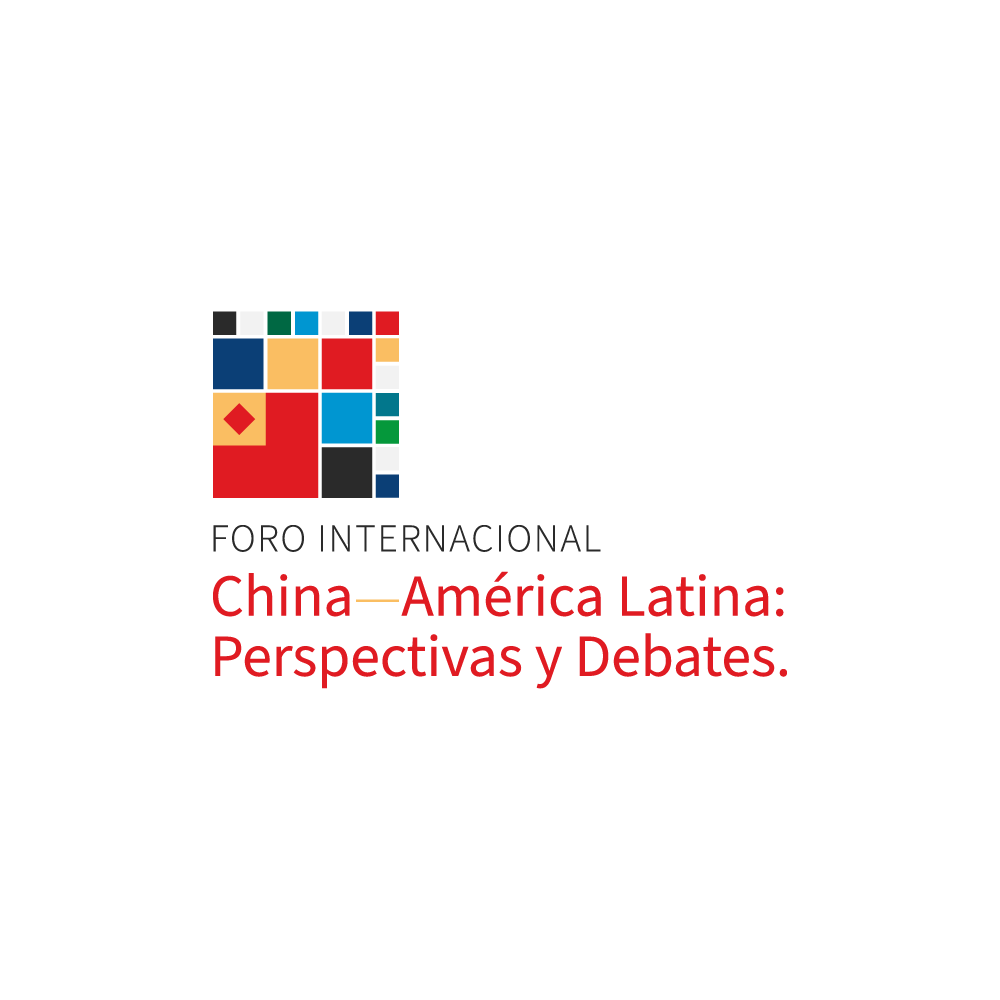
About the Event
This forum will provide in-person and virtual platforms to facilitate robust discussions and knowledge sharing on the complex relationships between China and the Andean Region. It will also offer technical support and capacity-building opportunities through workshops and training sessions led by distinguished experts.
Panelists will present cutting-edge research and perspectives while conducting practical application sessions on key subjects such as economics, politics, and society.
Objective and Expected Scope
The Andean Region of South America has historically relied on exports of commodities such as oil, minerals, and agricultural products, leading to economic fluctuations driven by global price changes. Additionally, it has relied on foreign technology and imports of manufactured goods. Over the last three decades, China has emerged as a key player in infrastructure and resource extraction, becoming a technology provider and an important trade partner, influencing the region’s political, social, and economic dynamics, and therefore impacting both growth opportunities and dependencies.
The forum "China-Latin America: Perspectives and Debates" will delve into these contemporary dynamics, bringing together leading scholars, and business leaders.
The forum, which will be held through workshops, technical training sessions, and expert panel discussions, aims to:
- Promote informed, strategic, and collective action in critically analyzing the influence of China in Latin America, particularly in the Andean Region.
- Foster a deeper understanding of China’s economic, technological, and political strategies in the Andean Region.
- Assess the impact of China’s domestic governance, foreign policy goals, and global actions on democracy, institutions, and legislation in Latin America.
Key Objectives
- Develop and enhance competencies: Train participants to critically assess the impact of China's activities in Latin America.
- Facilitate dialogue and research: Organize platforms for interdisciplinary discussions and long-term research initiatives on China’s role in the region.
- Establish a network of specialists: Create a network of experts to provide ongoing analysis and perspectives on China’s activities in Latin America.
Thematic Tables

Politics, history, and international relations
This section will address China's relationship with the region and its countries. Topics include international relations, geopolitics, bilateral and multilateral cooperation, regionalism, and migration.
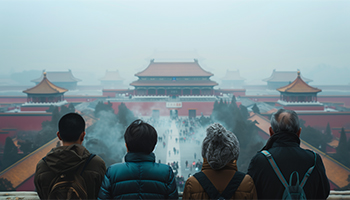
Governance, influence, and politics
This section focuses on citizenship policies, China’s governance model, civic participation, and intergovernmental exchanges. Topics include social and legislative responsibilities of Chinese companies, labor studies, and the influence of the Chinese government in Latin America.
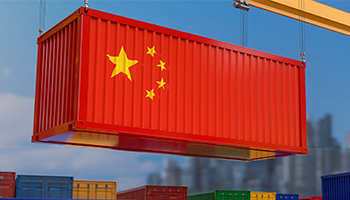
Economy, trade, and investment
This section analyzes economic growth, trade, and investments funded by China, particularly in extractive industries. Discussions will center on economic relations, trade balances, non-renewable resource extraction, and infrastructure development, focusing on Andean trade agreements.
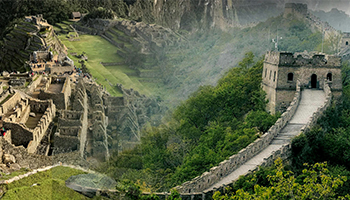
Academic and cultural exchanges
This section explores collaborations such as joint research initiatives and student exchange programs, highlighting the complexities of intercontinental academic and cultural interactions.
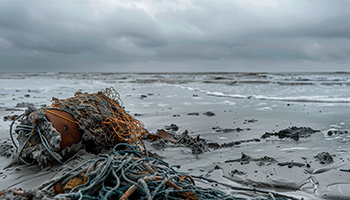
Environmental impact
This section seeks to assess and study the complex relationship between extractive/infrastructure activities and their environmental impact, focusing on illegal fishing and illegal mining.

Information and communication technologies
This section evaluates the use of Chinese technology in Latin America, the challenges of digital governance, the expansion of the “Digital Silk Road,” and the development of 5G and AI technologies.
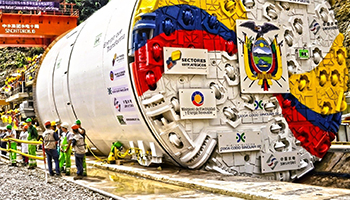
China infrastructure projects
This section examines China-sponsored projects in the Andean region, addressing delays and challenges in ensuring quality infraestructure development.
Call for Papers
International Forum
China-Latin America: Perspectives and Debates
April 23-24, 2025
FLACSO Ecuador - Universidad San Francisco de Quito
Invitation
The Asia Center of FLACSO Ecuador, along with the Institute for Advanced Studies in Inequalities at Universidad San Francisco de Quito (USFQ) and the China-Latin America Research Center of the Andrés Bello Foundation, invite the submission of papers, projects, research progress, or results for participation in the International Academic Forum “China-Latin America: Perspectives and Debates.” This forum will provide a platform for academic debate and knowledge exchange on the multifaceted interactions between China and Latin America, with a focus on the Andean region, bringing together academics and experts from across the continent.
The event aims to foster critical analysis of the influence of China in Latin America, particularly in the Andean Region, by bringing together experts from across the Americas.
The forum will take place on April 23 and 24, 2025, at the campuses of FLACSO and Universidad San Francisco de Quito, respectively. The event is free to attend, with prior registration.
Introduction
The Andean Region, like the rest of Latin America, has historically relied on the export of raw materials (oil, minerals, and agricultural products), leading to periods of economic boom and bust driven by fluctuations in global prices. Additionally, the region has depended on foreign technologies and imported manufactured goods, shaping its economic landscape. Over the past decades, China has emerged as a key player in the region, investing significantly in infrastructure and resource extraction, becoming a major trade partner. This relationship has had a considerable impact on the region’s political, social, and economic dynamics, creating both opportunities and dependencies.
The International Academic Forum “China-Latin America: Perspectives and Debates” will analyze the relationship between the Asian giant and Latin America, particularly with the Andean Region. To this end, it will bring together distinguished academics, experts, activists, diplomatic representatives, government officials, and business leaders from across the Americas. The goal is to balance engagement with China while addessing the associated challenges and risks.
This call for papers offers academics, professionals, journalists, and researchers of this relationship the opportunity to participate as panelists or simply attend to engage in discussions on these topics aligned with the following research areas:
Panel Topics
- Politics, history, and international relations
- Governance, influence, and politics
- Economy, trade, and investment
- Academic and cultural exchanges
- Environmental impact
- Information and communication technologies
- China infrastructure projects
Abstract Submission Guidelines
- Provide the names of the authors, institution name, and email address.
- Indicate the panel name you wish to apply for.
- Include the title of the paper.
- Submit an abstract of 150 to 200 words.
Important Dates
- Deadline for paper proposals: Friday, April 4, 2025
- Publication of the Congress program: April 16, 2025
Submission method: Fill out the following form
Speakers
Agenda April 23rd and 24th
Quito
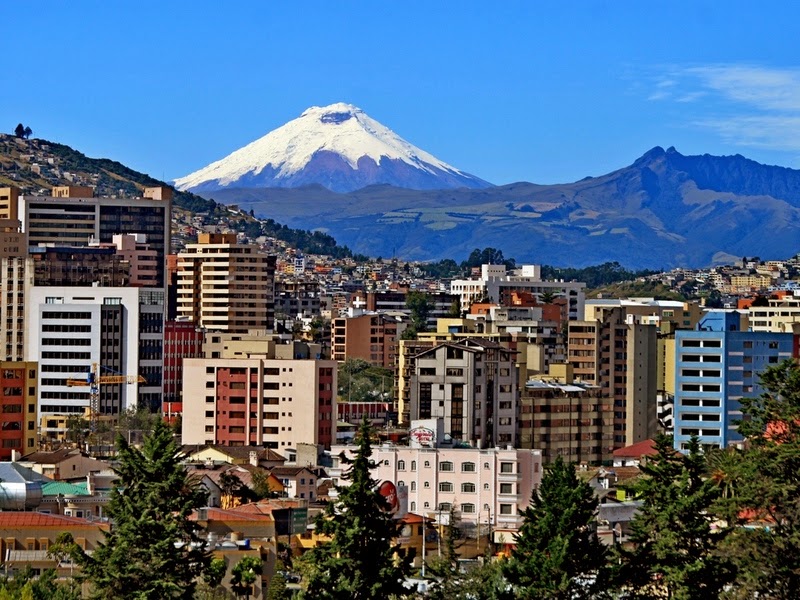
Quito, formally San Francisco de Quito, is the capital and largest city of Ecuador. At an altitude of 2,850 meters (9,350 feet) above sea level, it is the second-highest official capital city in the world after La Paz and the closest to the equator. Quito has a high-altitude tropical climate. Due to its elevation and proximity to the equator, the city experiences a fairly consistent cool climate. The average midday temperature is 18.7°C (65.7°F), with a typical nighttime low of 9.3°C (48.7°F). The annual average temperature is 14°C (57°F). The city only has two seasons: dry and wet. The dry season, from June to September (4 months), is known as summer; the wet season, from October to May (8 months), is called winter. Annual rainfall, depending on location, is approximately 1,000 mm (39 inches).
It is located on the eastern slopes of Pichincha, an active stratovolcano in the Andes mountain range. With a population of 2.8 million (in 2022), Quito is the most populous city in Ecuador. It is also the capital of Pichincha Province and the seat of the Metropolitan District of Quito.
Due to its geographic location and elevation, Quito receives a significant amount of solar radiation, making it one of the places on Earth with the highest solar exposure.
The historic center of Quito is one of the largest, least altered, and best-preserved historic centers in the Americas. Quito and Kraków, Poland, were the first sites to be declared UNESCO World Heritage Sites in 1978. Quito’s central square is located about 25 kilometers (16 miles) south of the equator; the city itself extends to approximately 1 kilometer (0.62 miles) from latitude zero. A monument and museum marking the general location of the equator is locally known as "La Mitad del Mundo" (the Middle of the World) to avoid confusion, as "ecuador" is Spanish for "equator."
For more information about Quito, visit this page:
More information: Visit Quito
Preparing for the trip
Participants are expected to arrive in Quito by Wednesday, April 23. Registration desk will open on Wednesday, April 23, starting at 8:30 a.m. at the FLACSO campus in Quito.
Participants are responsible for arranging their travel plans, including airfare, accommodation, and meals in Quito during the forum. The forum will conclude on Thursday, April 24, at 5:30 p.m., so participants may return home on Thursday evening or Friday, April 25.
Please note that you must have a valid passport for at least six months beyond your entry date to Ecuador. Be very careful; the passport must be valid for a minimum of six months from the date of entry. Most countries do not require a visa to enter Ecuador; please check if it is required in your case:
If you are interested in visiting Ecuador before or after the forum, we recommend contacting a travel agency to organize your trip. Expedition Tours is a reputable and well-known company that can help you plan a visit. You can check out the different packages they offer.
Tour Options
Galápagos Tour
A three-day tour exploring the Galápagos Islands, visiting some of their most iconic sites, and experiencing the region’s biodiversity firsthand. Get ready to walk along the beaches, swim in coastal waters, observe birds, and even swim with turtles, sea lions, and fish.
📅 Date: Saturday, April 19 – Monday, April 21.
💳 Price: $1,700 USD.
Tandayapa Day Tour
This tour takes you to the Tandayapa Cloud Forest Station (TCS), a research center run by the Universidad San Francisco de Quito in the Chocó Andino Biosphere Reserve. Discover emblematic local flora and fauna, including the Andean spectacled bear or the olinguito.
📅 Date: Friday, April 25 or Wednesday, April 20.
💳 Price: $150 USD.
Amazon Rainforest (Tiputini) Tour
Travel to the Tiputini Biodiversity Station (TBS), a research center run by the Universidad San Francisco de Quito on the north bank of the Tiputini River, administering 744 hectares of tropical rainforest. Disconnect from technology while experiencing the area’s incredible biodiversity.
📅 Date: Friday, April 25 – Tuesday, April 29.
💳 Price: $1,120 USD.
Organizers
This forum is co-organized by FLACSO Ecuador, the Universidad San Francisco de Quito USFQ (Faculty of Social Sciences, Institute for Advanced Studies in Inequalities (IEAD), Asian Studies Group), and the Andrés Bello Foundation (ABF)–China-Latin America Research Center.



Supported by:

